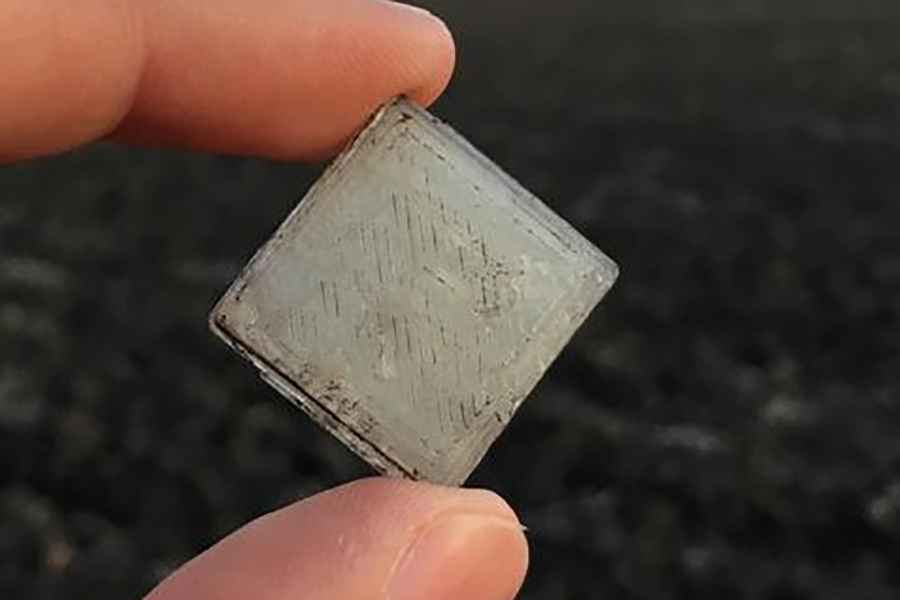Purdue DIRTS Team Digs Deep for Win

A team from Purdue has been awarded fourth place in an international competition sponsored by Bayer.
The Purdue DIRTS (Degradable and Intelligent Radio Transmitting Sensor) team won 10,000 euros and the opportunity to showcase their solution in front of representatives from key industry leaders, startups and institutions during a presentation in October.
Purdue’s team was comprised of Sarath Gopalakrishnan, PhD student, School of Electrical and Computer Engineering; Jose Waimin, PhD student, School of Materials Engineering; Nithin Raghunathan (BSEE '07, PhD ECE '14), research scientist, Birck Nanotechnology Center; and led by Rahim Rahimi (PhD ECE '17), assistant professor of materials engineering.
DIRTS is a product of merging state-of-the-art technologies from two interdisciplinary fields — radio frequency electronics and materials engineering — to develop small-sized sensors for precision agriculture applications. DIRTS addresses the need for around-the-clock subsoil monitoring using a low-cost wide-area network of biodegradable, passive (battery-less), chipless (zero electronic circuits) and wireless devices.
The team had already developed a moisture sensor which met most of the criteria, but was too large for this particular application. The significant challenge of scaling down the sensor was met by utilizing Electrically Small Antenna technology, which enabled the team to design a sensor that operates at a frequency suitable for ground penetration with a 25-times area reduction. The team then narrowed the search for suitable biodegradable materials and manufactured the sensors with the help of 3-D printing technology.
“Ours was the only sensor that was biodegradable, battery-less, and chipless,” said team lead Gopalakrishnan. “When this competition was announced, we had a non-biodegradable sensor of size 10 centimeters by 10 centimeters that obviously couldn’t fit inside a corn planter. This challenging, yet exciting competition gave us the drive to develop working sensors that were environmentally friendly and 25 times smaller in area.”
Bayer’s Grants4Tech SeedSensor competition looked for seed-sized sensor solutions that monitor soil properties relevant for seed germination and early growth. The goal of the contest was to develop a device to collect data on soil conditions impacting germination. The device was to be as small as possible; take accurate measurements; survive without function loss in the soil environment; accurately monitor seed and soil; transfer data wirelessly to a receiver device for at least two weeks; and be either recyclable, reusable or biodegradable.
The competition attracted teams from around the globe, all competing for prize money and the opportunity to collaborate with international health and agriculture giant Bayer. Devices from top teams were sent to Bayer facility in St Louis to be independently evaluated.
“It seems that most of the teams were startups from Europe and Australia who have been working on digital ag solutions for some time,” states Ali Shakouri, the Mary Jo and Robert L. Kirk Director of the Birck Nanotechnology Center and Professor of Electrical and Computer Engineering. “It is a great accomplishment to be placed fourth among seven teams in such international competition. Purdue team was the top ranked participant from US.”
The DIRTS team is interested in developing this low-cost batch-manufacturable technology for agricultural/IoT industries. “We are working to advance the technology demonstrated in Bayer competition by integrating multiple sensors and also improving the measurement accuracy over weeks to months,” said Rahim Rahimi who is leading this project.
